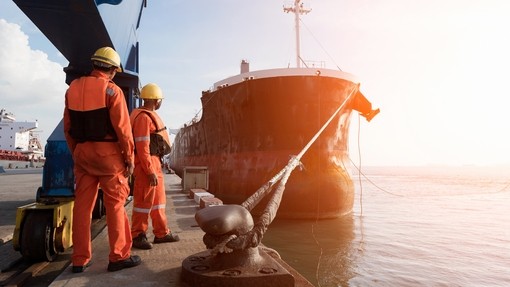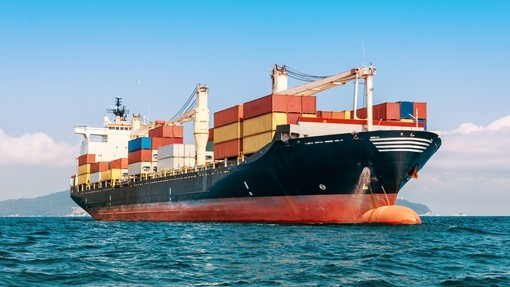K Line Pte Ltd -v- Priminds Shipping (HK) Co Ltd (The Eternal Bliss) [2020] EWHC 2373 (Comm)

Details
In this case, the court was required to consider whether an owner is entitled to claim damages in addition to demurrage when the charterer has failed to load or discharge the ship within the permitted laytime, where the only breach of contract by the charterer is the failure to load/discharge within laytime.
Factual background
The parties entered into a contract of affreightment dated 30 July 2014 for nine separate voyages (the Contract), with one laycan per month from February to October 2015. The Contract was drawn up on a Norgrain form (the North American Grain Charterparty 1973, amended 1/7/74), as amended and supplemented by the parties, and included bespoke provisions for the creation and narrowing of the individual voyage laycans.
The cargo for each voyage was to be 60,000 MT, 10% more or less in K-Line’s option, of heavy grain, soya or sorghum in bulk. Clause 18 set out the contractual discharge rate and thus determined the laytime allowed and when the chartered ship went on demurrage at the discharge port. The demurrage clause was Norgrain clause 19, as amended by the parties.
The dry bulk carrier “ETERNAL BLISS” (the Vessel) was nominated by K-Line for the June 2015 laycan. On 29 July 2015, at 04:24, the Vessel arrived at Longkou anchorage and tendered NOR for discharge. The Vessel was then kept at anchorage for some 31 days due to port congestion and lack of storage space ashore. Upon discharge, the cargo was said to have exhibited significant moulding and caking throughout the stow.
A US$6 million letter of undertaking was provided in favour of the cargo receivers, Shandong Xiang Chi Grain and Oil Company Ltd (the Receivers) as security for their claim, in return for the Receivers refraining from arresting the Vessel. K-Line later settled the Receivers’ claims at a total cost of c. US$1.1 million. In January 2019, K-Line commenced arbitration proceedings against Priminds, seeking damages or an indemnity in respect of the sum K-Line paid to Receivers. The only allegation of breach made against Priminds was that it had failed to discharge the cargo at the rate specified by clause 18.
In due course, the parties agreed to refer this issue of law to the court under s.45 of the Arbitration Act 1996. For this purpose, the parties agreed the following facts should be assumed: (i) the Vessel was detained beyond the contractual laytime due to congestion and a lack of storage; (ii) Priminds was in breach of its obligation to complete discharge within the permitted laytime; (iii) the condition of the cargo deteriorated as a result of the detention; (iv) this resulted in K-Line suffering loss and damage, and incurring expense; (v) the loss, damage and expense incurred were not caused by any separate breach or by an event that broke the chain of causation and were reasonably incurred, and (vi) the loss, damage and expense suffered were consequences of compliance with Priminds’ orders to load, carry and discharge the cargo.
Legal analysis
The question of law the judge was required to determine was as follows:
‘If the facts were as presently assumed in respect of the voyage charter of m.v “ETERNAL BLISS”…is the charterer liable to compensate or indemnify the owner in respect of the loss, damage and expense referred to therein by way of:
(a) damages for the charterers’ breach of contract in not completing discharge within permitted laytime; and/or
(b) an indemnity in respect of the consequences of complying with the charterers’ orders to load, carry and discharge the cargo?’
The judge began by making the obvious point that parties could contract using language in their demurrage clause that answers this issue. The judge noted that the Norgrain form does not contain such language; by using the Norgrain form the parties agreed that ‘Demurrage…, if incurred’ was to be paid at a certain rate, so their agreement was that ‘demurrage’ be paid. The judge noted that this was a familiar phenomenon in standard voyage charter forms such as the Gencon and Asbatankvoy forms.
The judge considered the Court of Appeal cases of Aktieselskabet Reidar -v- Arcos [1927] 1 K.B 352 and Inverkip Steamship Co -v- Bunge & Co [1917] 2 KB 193. In Aktieselskabet Reidar -v- Arcos the cargo was not loaded at the specified rate, because of this, the ship went on demurrage and loading was not completed in time to allow the ship to complete her laden voyage before the winter deckload limit came into effect. Owners argued that charterers had two obligations, (1) to load a full cargo and (2) to load within the allowed laytime. Owners claimed for damages for breach of the obligation to load a full and complete cargo, a claim for dead freight. All three judges agreed that the owners’ claim should succeed, however the judges disagreed as to the number of breaches by charterers. Sargant LJ agreed with owners that there had been two breaches of contract; to load a full cargo and to load within the allowed time, whereas Bankes LJ said that there was a single breach; the only breach was the failure to load within the allowed time. There was uncertainty as to Atkin LJ’s view; however the majority view taken in the cases that have followed, including this case, was that Atkin LJ agreed with owners that there had been two breaches of contract.
In Inverkip Steamship -v- Bunge the intended loadport had been closed because of a natural disaster. Owners and charterers therefore agreed that the vessel, and cargo to be loaded, should be diverted to a substitute port. The substitute port was severely congested, causing long delays, and the shippers of the cargo failed to send the cargo to the substitute port. Laytime began on 25 August and expired on 31 August, but loading was not completed until 29 September. The rate of demurrage was only about £47 per day, whereas owners said that a proper rate for damages at large for detention would be £200 per day. The court held that owners could not recover any more than the agreed demurrage rate. Although the obligation to provide a cargo was a separate and distinct obligation from the obligation to load within the allowed laytime, the only consequence of that breach was the prolongation of the employment of the vessel.
Following the above cases, the judge held it was possible to conclude that:
- Owners can recover beyond demurrage if (a) there has been a separate breach, other than the failure to load/discharge within the allowed laytime and (b) there is a claim other than for detention of the Vessel;
- Owners cannot recover beyond demurrage if (a) there has been a separate breach, but (b) there is no claim other than for the detention of the Vessel.
The judge noted that the present case did not fall into one of the above categories, as the only allegation of breach against Priminds was that it had failed to discharge the cargo within the allowed laytime, there had not been a separate breach. The judge therefore had to consider the nature of the loss claimed in order to determine whether there was a claim other than for the detention of the Vessel. The judge agreed with K-Line that damage to the cargo is distinct in nature from, and additional to, the detention of the ship.
The judge accepted that as a consequence of agreeing with K-Line’s argument, that there was a claim other than for the detention of the Vessel, K-Line had to say that The Bonde [1991] 1 Lloyd’s Rep. 136 had been wrongly decided. The ratio of Potter J’s judgment in that case was that the buyer could not recover damages beyond demurrage, as the only breach by the seller had been the failure to load at the contractual rate, despite the fact that the buyer was complaining about harm separate from and different in kind than the detention of the ship.
The nature of this decision therefore came down to whether to follow or depart from Potter J’s decision in the Bonde. The judge held that the Bonde was wrongly decided and should not be followed. The judge said that the analysis of Potter J was premised on the faulty reasoning that if the majority view in Aktieselskabet Reidar -v- Arcos was that there were two breaches of contract by the charterer, it followed that Bankes LJ’s approach that the claim could succeed with just one breach, the breach to discharge within the allowed laytime, was wrong in law.
Accordingly, the judge found, in answer to part (a), that Priminds was liable to compensate K-Line, in respect of the loss, damage and expense that K-Line had suffered, by way of damages for Priminds’ breach of contract in not completing discharge within the permitted laytime. The judge said that as he had reached this conclusion, it was not necessary to answer part (b).
Comment
This is an important decision, which settles (subject to further appeal) a longstanding debate on this area of law. Where charterers have failed to load or discharge within the permitted laytime and owners have a claim other than for detention of the vessel, owners are entitled to damages from charterers for this loss, even if the failure to load or discharge within the allowed laytime is the only breach of contract by charterers. However, the judge did point out in his introduction that “…it may take a judgment from the Court of Appeal for the controversy to be settled definitively.”






